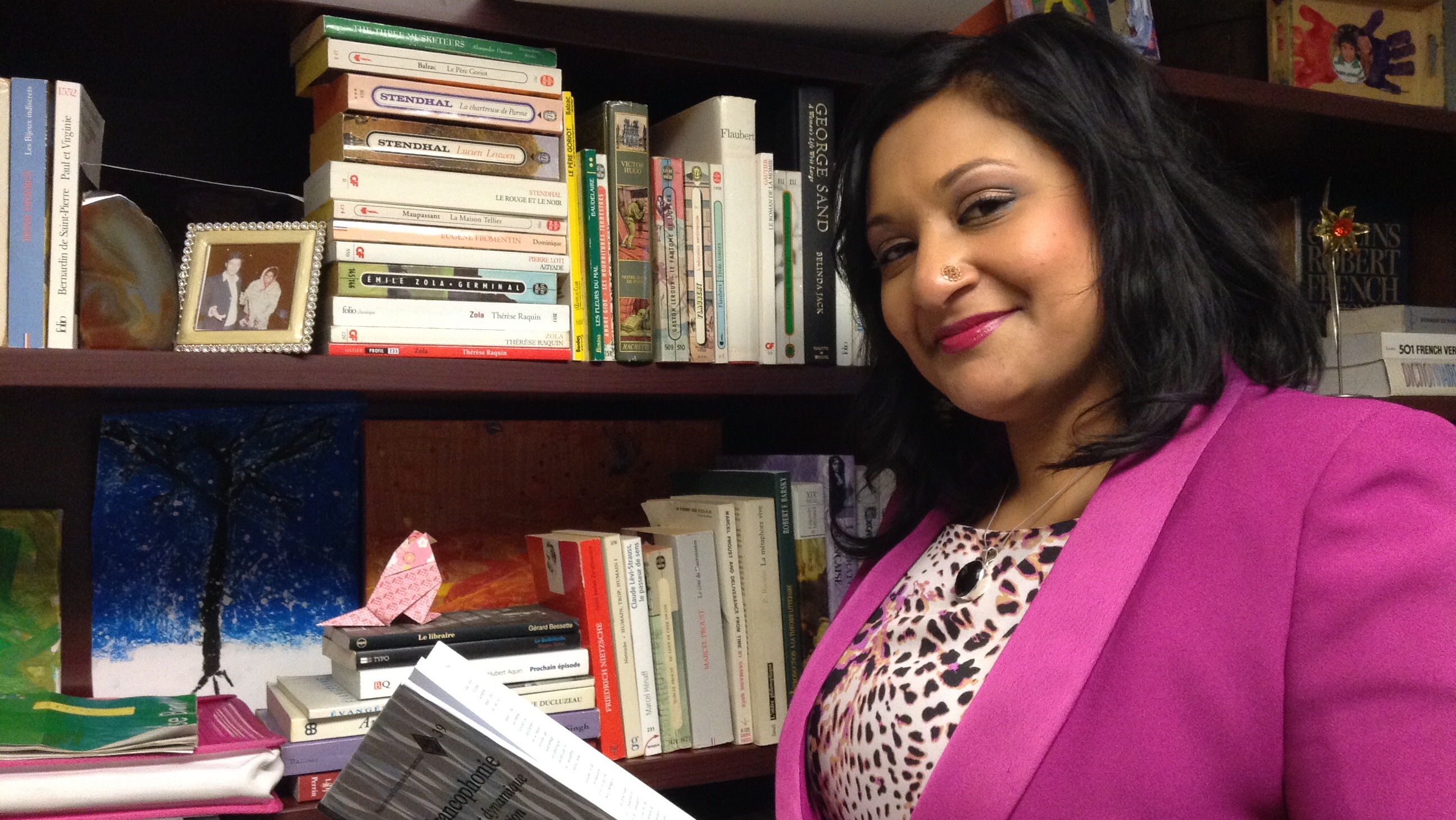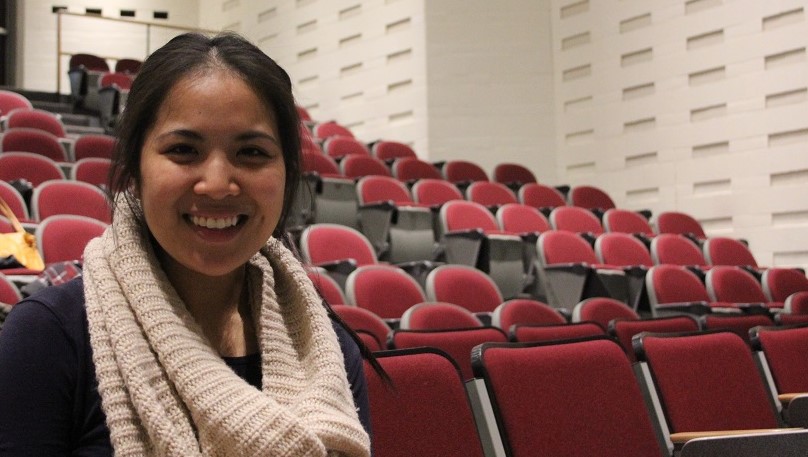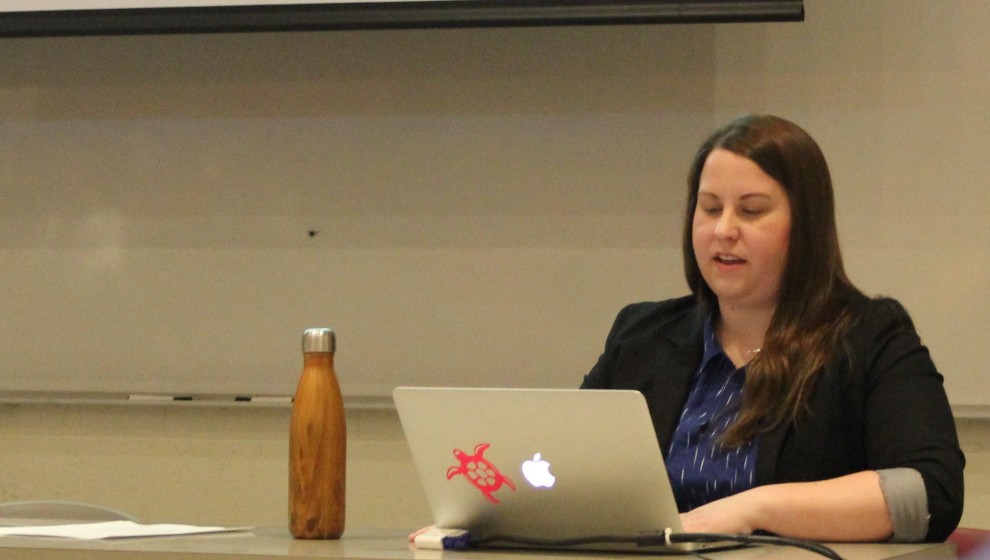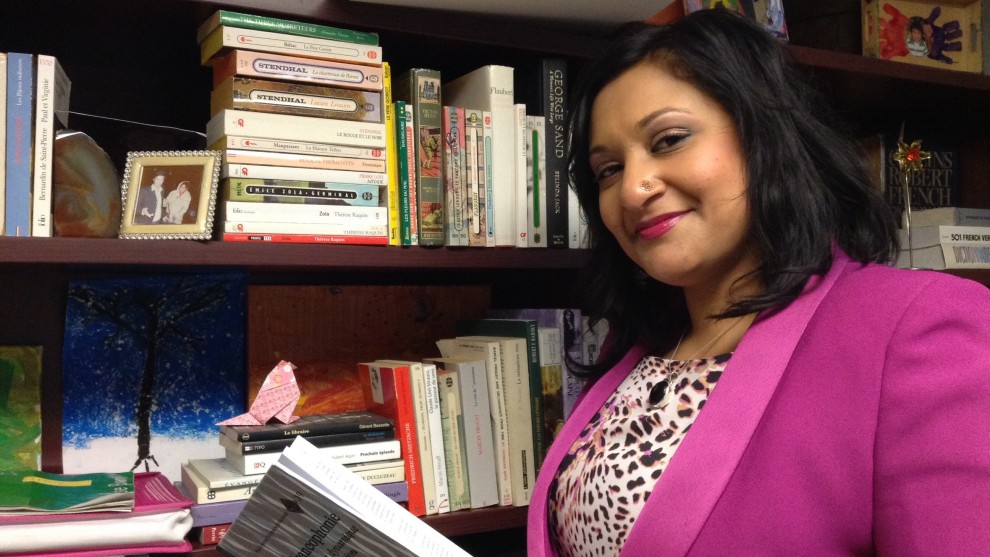Refugees
Women refugees face employment, education barriers
Saint Mary's symposium looked at the issues facing female refugees

caption
Rohini Bannerjee emphasized the importance of women as storytellers at the March 4 event.
caption
Manila Tanafranca, Mount Saint Vincent University WUSC committee chair, said gender imbalance is a general problem in refugee programs.The theme of women refugees was in the spotlight as Saint Mary’s University hosted its annual symposium on Friday, March 4.
The Women Refugees Symposium was host to an audience of young and old.
In light of Canada’s 25 000th Syrian refugee arriving in late February, Gina Kokoska discussed how integrating into Canadian society may be particularly difficult for women refugees. Kokoska is a social work placement student at Halifax Refugee Clinic.
“The biggest travesty is the government not respecting the skills of the people we invite to live here,” Kokoska said.

caption
Gina Kokoska said the barriers facing women refugees often force them into jobs for which they are over qualified.Kokoska said women refugees have difficulty finding child care, and are often dependent on their husband or children or have unrecognised credentials.
Often, these barriers force women into underqualified jobs, Kokoska said.
Audience members shared stories of how their family members who were once doctors and other high-paying professionals in their home country came to Canada to work in low-paying jobs like cab driving or fast-food restaurant staff.
Education: a woman’s struggle
A recurring concern during the panel discussion was the gender imbalance in the refugee sponsorship program offered by WUSC, a non-profit organization in international development that works with universities across Canada.
Mutsa Simango, SMU-WUSC committee chair, said that out of the 30 refugees that SMU has been able to sponsor through WUSC, seven of them were women.
“This is a huge problem,” Simango said. “Women don’t get the voice they deserve.”
After an audience member raised concern over this statistic, Ysaac Rodriguez, manager of SMU’s international centre, explained why SMU has had trouble bridging the gender gap.
Rodriguez said SMU has a particularly difficult time sponsoring more females because men often are not as fluent in English as women are. Saint Mary’s language centre is seen as an advantage to refugee men who may be more in need of assistance than women.
The WUSC model is a top-down approach that disseminates students from Ottawa – where WUSC headquarters are located – to universities across Canada.
Manila Tanafranca, Mount Saint Vincent University WUSC committee chair, said 70 per cent of all applicants in the WUSC program are men.
This means that the gender imbalance is not a SMU problem, but a general problem that Tanafranca and Simango think needs to be addressed.
The unspoken story of refugee crises
Rohini Bannerjee, an associate professor of French and francophone studies at SMU, talked about the importance of women as storytellers.
Using the refugee crisis of the Chagossians, an exiled people from the Chagos Islands during the the 1960s and ’70s, Bannerjee showed how refugee crises have a long history.
“Often people in my class would liken the exile of the Chagossians to that of the Acadians. It’s not a new story,” Bannerjee said.
Bannerjee teaches francophone studies of the Indian Ocean. In September she will be teaching a class on Le Silence des Chagos, a novel by Shenaz Patel.

caption
Rohini Bannerjee emphasized the importance of women as storytellers at the March 4 event.Her lecture on Friday spoke to the characters of Patel’s book.
“Our warmest feelings are being with our mothers telling us stories, our grandmothers telling us stories. We translate love and sadness that way,” Bannerjee said.
Bannerjee says that women from the Mauritius Islands play important roles in keeping history alive.
“Females are the ones who often carry the stories with them. Women tell the story, write the recipe, they continue the connection to the home. The mother connects the children to where they’re from.”

